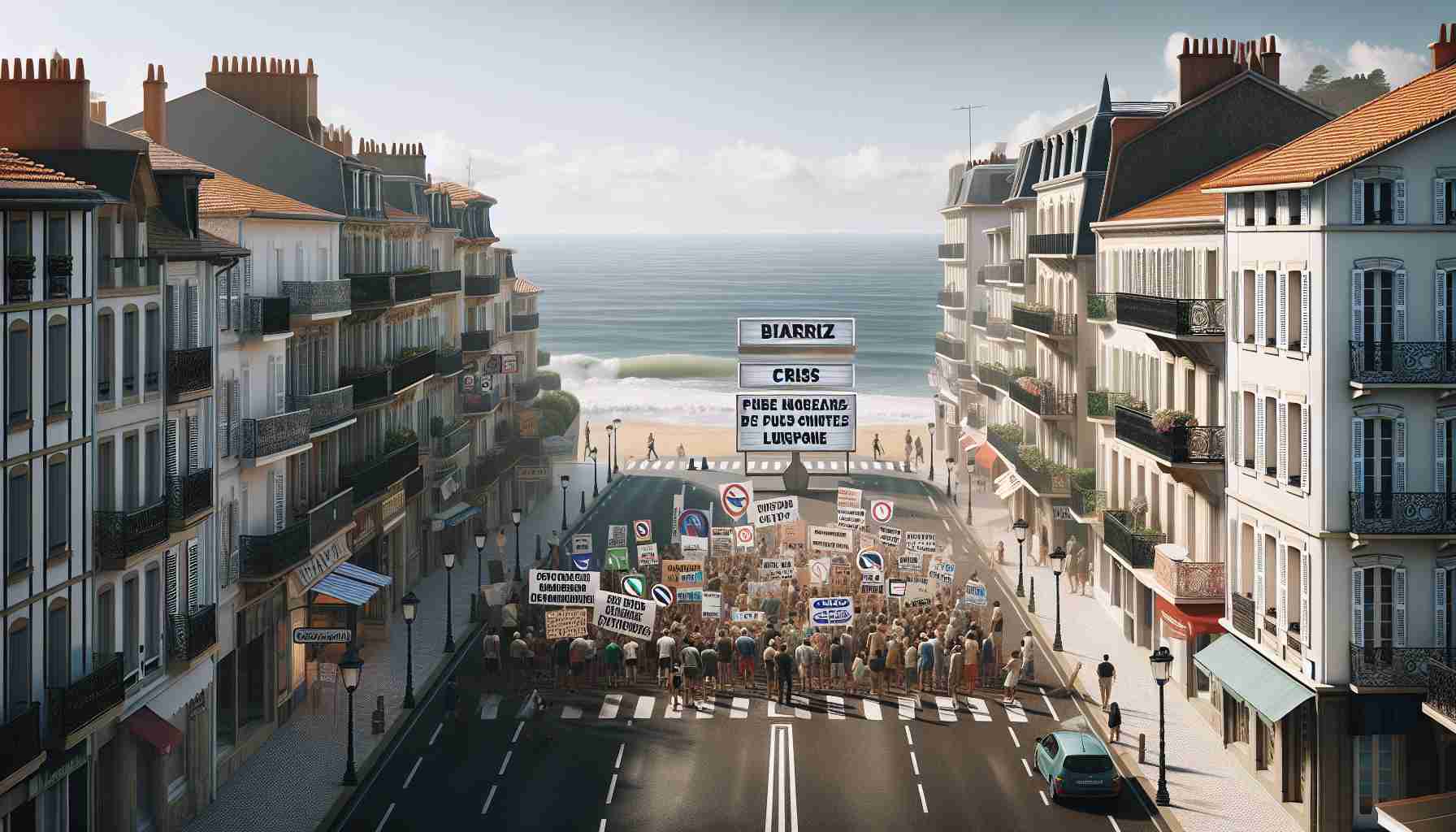- The Bordeaux administrative court ruled against the name “La Négresse,” deeming it derogatory and outdated.
- This decision follows a 2020 advocacy by the anti-racist group Mémoires et Partages for social justice.
- The court highlighted the name’s negative connotations regarding racial identity.
- Biarritz Mayor Maider Arosteguy plans to contest the ruling at the Council of State.
- There is a proposal to revert to the original Basque name, “Harausta,” to enhance cultural identity.
- The ongoing legal battle emphasizes the need for communities to reconcile their histories with modern values.
- Biarritz faces a critical choice between upholding tradition and embracing inclusivity.
In a dramatic turn of events, the fight over the name of Biarritz’s notorious La Négresse neighborhood has reached a pivotal moment. The administrative court of Bordeaux has sided with the anti-racist group Mémoires et Partages, declaring the term outdated and derogatory. This long-standing issue, ignited in 2020 by advocates for social justice, has sparked fierce discussions about race, history, and dignity.
The court stated that the name evokes “a demeaning connotation regarding the racial origin of a woman whose identity remains unknown.” This decision marks a significant shift from a prior ruling that defended the neighborhood’s historical roots linked to a 19th-century inn run by a woman of Haitian descent, affectionately nicknamed “La Négresse” by Napoleonic soldiers.
Following the verdict, Biarritz Mayor Maider Arosteguy expressed her intention to challenge the ruling at the Council of State, arguing that locals should lead any discussions about the name’s future. The association proposes a return to the neighborhood’s original Basque name, “Harausta,” fostering a sense of cultural identity devoid of racial connotations.
As this legal battle unfolds, it raises essential questions about how communities honor their past while fostering an inclusive future. The town’s image hangs in the balance as residents and officials navigate this complex issue. Will Biarritz embrace change, or continue to wrestle with its historical baggage? The conversation has only just begun, and the city stands at a crossroads of tradition and progress.
Historic Name Change Sparks Cultural Shift in Biarritz
Understanding the Significance of Biarritz’s Name Change
The recent ruling by the administrative court of Bordeaux regarding the neighborhood name “La Négresse” has ignited a broader dialogue on race, history, and community identity in Biarritz. This situation is not just about a name – it symbolizes a necessary reevaluation of historical narratives and their implications in today’s society.
Market Analysis of Community Identity Changes
Communities globally are increasingly examining their historical narratives, leading to cultural transformations. Research shows that towns and cities across Europe and North America are renaming landmarks and neighborhoods to reflect inclusive values. This trend can create a sense of belonging among marginalized groups and contribute to social cohesion.
Trends in Social Justice Movements
The ongoing discourse around the name change in Biarritz aligns with a global trend where social justice movements are gaining traction. As communities recognize the harmful impacts of racially insensitive names, there is a growing movement advocating for changes that resonate more positively with current societal values.
Key Questions Addressed
1. Why is the name “La Négresse” considered derogatory?
– The term is viewed as outdated and carries derogatory connotations tied to racial stereotypes. The court’s decision emphasizes the need for terminology that respects all community members and their identities, moving away from terms that have historically been used in a pejorative context.
2. What outcome does the Biarritz Mayor propose regarding the neighborhood’s name?
– Mayor Maider Arosteguy intends to challenge the court’s ruling to uphold local heritage. She aims for discussions that involve local stakeholders to determine the neighborhood’s name, suggesting a potential return to its original Basque name, “Harausta,” which is devoid of racial implications.
3. How does this situation reflect broader societal changes?
– The Biarritz case exemplifies a growing trend in which communities are reconsidering their historical narratives and seeking to be more inclusive. As activists push for justice and recognition, cities like Biarritz are at a pivotal point in re-evaluating what their names and symbols represent in a modern context.
Insights and Innovations
This evolving situation in Biarritz not only sheds light on the local sentiments surrounding identity and history but also serves as a mirror reflecting global social justice initiatives. Many cities are actively engaging in dialogues about race and culture, hoping to yield meaningful changes that foster inclusivity.
Use Cases for Community Engagement
1. Public Forums and Discussions:
– Establishing community forums allows residents to express their views and various perspectives on what the neighborhood name represents.
2. Partnerships with Social Justice Organizations:
– Collaborating with local organizations can help in understanding the community’s historical context while ensuring all voices are considered during discussions.
3. Educational Programs:
– Incorporating programs aimed at educating residents about the impacts of historical names and symbols can facilitate an informed dialogue about the need for change.
Limitations and Controversies
While the intention behind renaming efforts is to foster inclusivity, there can be divided opinions among residents. Some might see the name change as an erasure of history or cultural heritage, indicating the need for careful navigation in the conversation about history and community identity.
For further insights, you can explore [this link](https://www.biarritz.fr) for more on Biarritz and its community initiatives.
